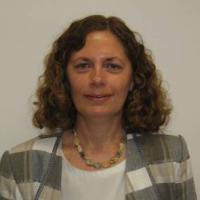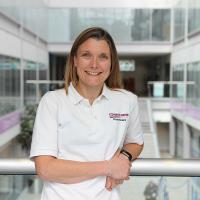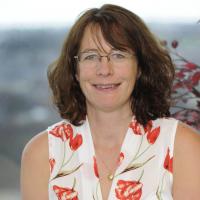Spotlight Session 6: Parkinson’s Active – Getting People with Parkinson’s Moving; The Community Solutions Programme – Improving Health and Wellbeing through Community-led Support and Partnerships; Planned Date of Discharge – an Exemplar of Partnership Working
Video Galleries
Parkinson’s Active – Getting People with Parkinson’s Moving
Parkinson’s Active is an innovative partnership project to enable people with Parkinson’s to self-manage their condition through exercise and physical activity.
Parkinson’s is the fastest growing neurological condition in the world. It is a complicated, progressive condition and carries a very high risk of unplanned hospital admissions along with escalating care needs.
This presentation will include:
- Research showing that exercise can be as important as medication for managing Parkinson’s;
- Some of the barriers that can prevent people with Parkinson’s from being physically active, and suggestions to overcome them;
- The role of the Parkinson’s community in guiding all aspects of the project;
- How Parkinson’s Active is working in partnership with health and social care professionals and local community exercise providers to deliver sustainable, community-based exercise programmes for people with Parkinson’s across Scotland; and
- The impact of the pandemic and how it left people with Parkinson’s facing worsened symptoms and deconditioning, and Parkinson’s Active is working with leisure trusts to move their exercise offer online.
The presentation will also look at how Scotland-based health and care professionals are connecting with each other, and people affected by Parkinson’s, through the Parkinson’s Excellence Network. Sharing data, ideas and practice across professional groups is driving improvements in Parkinson’s support in Scotland.
Speakers

Mary Ellmers
Service Improvement Manager Scotland, Parkinson’s UK

Julie Jones
Clinical Academic Fellow, Robert Gordon University

Amanda McKay
Parkinson’s Active Project Support Officer, Parkinson’s UK
The Community Solutions Programme – Improving Health and Wellbeing through Community-led Support and Partnerships
The Community Solutions programme is an innovative and successful partnership between Health and Social Care North Lanarkshire (HSCNL) and the local community and voluntary sector (CVS) that seeks to develop and strengthen local communities and opportunities for local people to improve their health and wellbeing and reduce inequalities through community-led support and services.
At the heart of the Community Solutions programme is a community-led locality development programme. This comprises six well-established locality hosts and community anchor organisations, which facilitate a network of local people, CVS groups and HSCNL colleagues to support capacity building to address local needs.
This presentation will explore how the Community Solutions programme funds and supports over 20 North Lanarkshire-wide thematic projects on key issues which support vulnerable groups across North Lanarkshire and also link into and support the locality networks. Funded projects support work on a wide range of issues including: advocacy; anticipatory care planning; community food and health; community transport; and volunteering.
Speakers

Gina Alexander
Community Solutions Programme Manager, Voluntary Action North Lanarkshire
Planned Date of Discharge – an Exemplar of Partnership Working
The first question a person invariably asks when admitted to hospital is “when am I going home?”. Creating a clear destination and date of discharge can alleviate stress and anxiety for the patient and carer.
In South Lanarkshire, a programme called Planned Date of Discharge (PDD) is making this a reality. As well as clear benefits to people in receipt of care, PDD has reduced delayed discharge in South Lanarkshire Health and Social Care Partnership (HSCP) from one of the highest in the country – to one of the lowest.
It’s down to hospital staff, health, social care professionals, community teams and partners working seamlessly – with the patient at the very heart of the process.
As we Re-mobilise, Recover and Re-design, this programme is now being rolled out in Lanarkshire in close partnership with North Lanarkshire HSCP/acute colleagues.
This presentation will explore:
- The logic and strategy underpinning the PDD approach;
- The impact (in both strategic, operational and in human/patient terms); and
- The mechanics of instigating and scaling up a successful programme, involving a range of key partners and stakeholders, during a pandemic.
Speakers

Euan Duguid
Communication Manager, South Lanarkshire Health and Social Care Partnership

Marianne Hayward
Head of Health and Social Care, South Lanarkshire Health and Social Care Partnership
